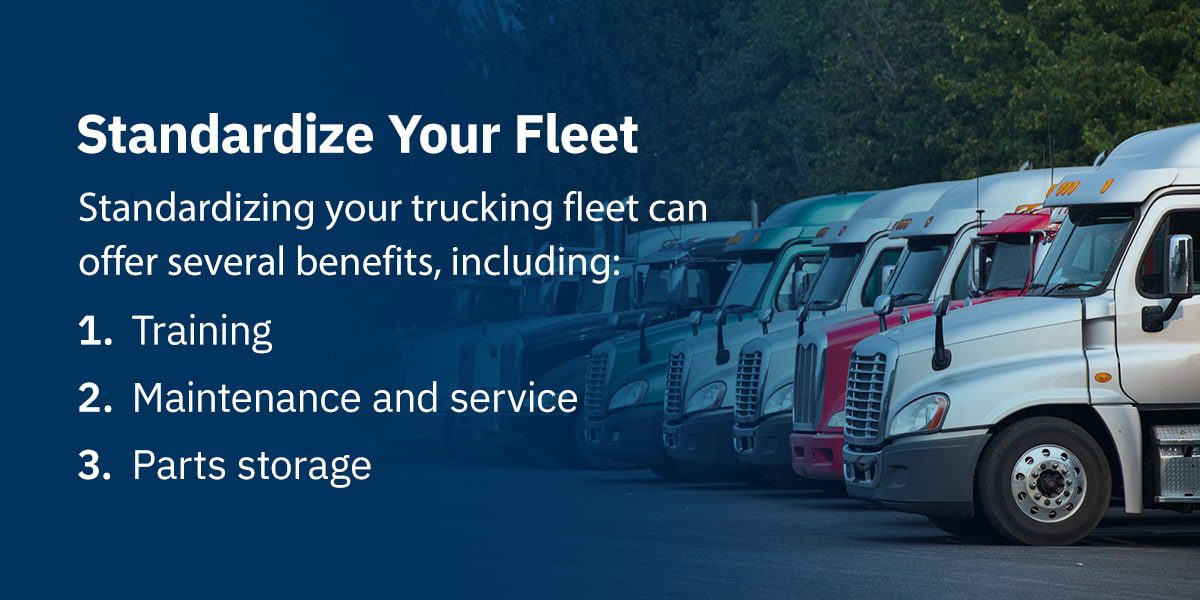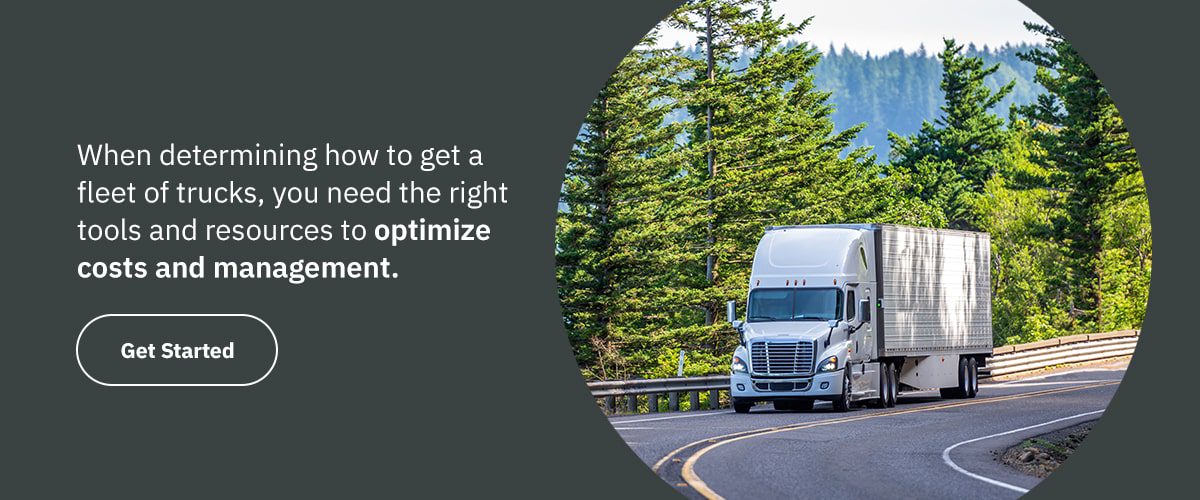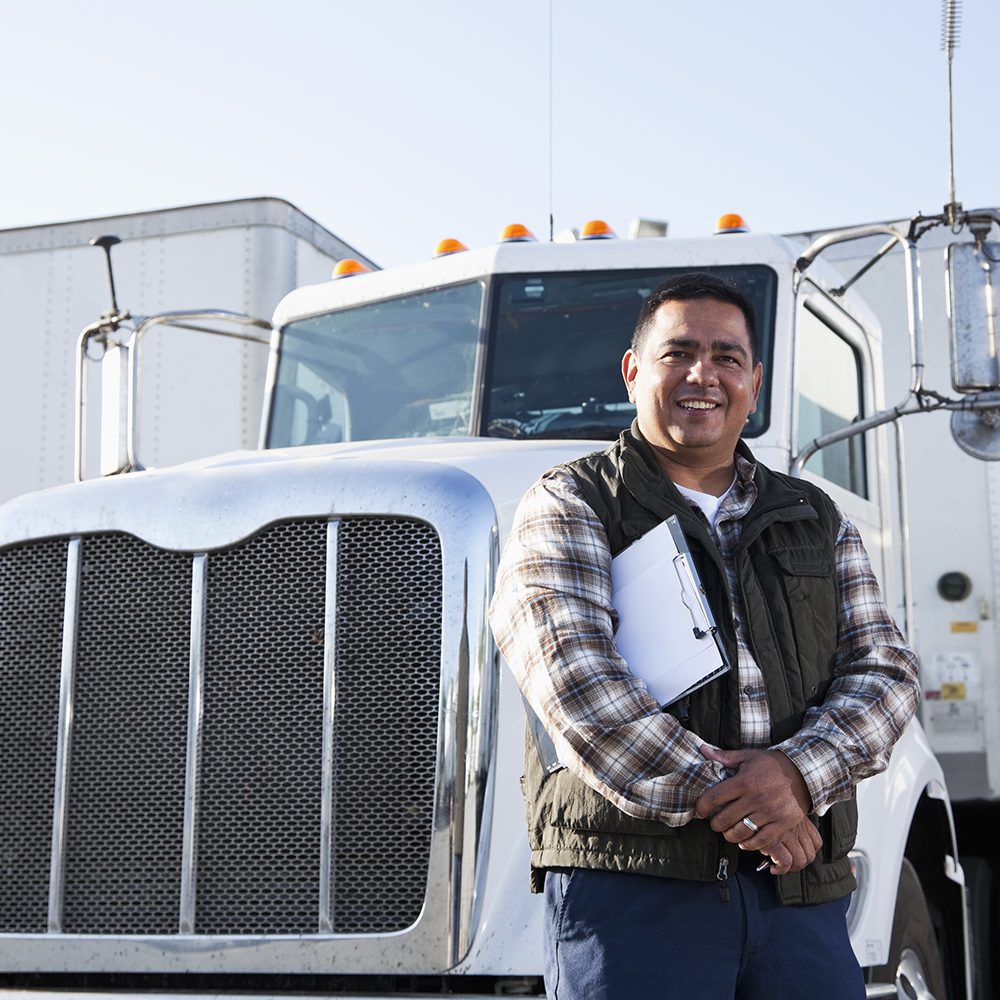
4 Tips for Purchasing Fleet Vehicles
When figuring out how to buy a fleet vehicle, you need the right resources. We’ll outline four factors you must consider before investing in a new fleet for better results and performance.
1. Determine Your Specific Needs
Your trucking fleet must support your intended purpose. Trucks have many specifications and features, so understanding what your company needs to complete jobs can help you narrow down options. Consider the routes you will take and the truck’s load capacity before purchasing.
Your routes will play a significant role in the type of truck you buy. Local climate and road conditions will determine which trucks can transport goods safely to and from destinations. For example, your fleet needs will differ depending on whether you drive primarily along highways and deliver to warehouses or drive off-road and deliver to individual homes.
Routes can also determine factors like truck size and fuel type. Larger trucks might have more difficulty navigating cities or locations with narrow roads. A smaller truck might be inefficient for traveling long distances but will be great for local deliveries.
Load capacity is another factor that will contribute to your truck’s purpose and functionality. If you carry oversized items, you will need a truck to accommodate their size. If you carry small items, you can purchase a smaller truck or fit more into a large truck for quicker deliveries.
2. Consider Costs
When companies prepare to buy fleet vehicles, they often judge their worth based on the upfront costs. However, you can get a better idea by looking at the total cost of ownership. Other than the initial investment and purchase costs, some expenses of truck ownership include:
- Make and model: Each manufacturer has different standards and priorities when designing and selling trucks. Many develop new technology and features yearly and release them in the latest models. High-quality technology can enhance driver experience and functionality, but it can also cause prices to skyrocket.
- Fuel types: Modern advancements have allowed companies more freedom to choose their fuel preference. You can explore models that take gas, diesel or electric energy. Electric fleet vehicles are becoming more popular and available, so your company can depend on them for long-distance travel. They’re likely to become even more prominent in the coming years. President Biden signed an Executive Order in 2021 declaring a goal to have 50% of all new vehicles sold in 2030 be zero-emissions vehicles. Some zero-emissions vehicles are powered by hydrogen. Hydrogen fuel cells recharge quickly and produce fewer emissions than gas models. Fuel costs vary, affecting long-term expenses for fleets. For example, a gas model might be cheaper upfront than an electric model, but gas might cost you more over the years.
- Maintenance and service requirements: When investing in a company fleet vehicle, you want something durable and reliable. Cheaper vehicles are great upfront investments, but they might have lower-quality components and parts that require more maintenance and repairs later. While researching your potential vehicles, you will want to match models to your care and service budget.
- Insurance: You must protect your fleet and drivers. Insurance will help cover costs but will also require premiums that can drain finances. Prioritizing safety and technical features can reduce accidents, saving you money on repairs and parts, but it can also impact your insurance rates. Increased road safety and fewer accidents can decrease high premiums, making your fleet more cost-efficient.
Considering long-term costs can help you make a more sensible financial investment as you purchase fleet vehicles. Many features that are expensive upfront can boost your return on investment later. If you want to eventually sell your vehicles, you can get a better price for increased performance and quality.
Look for promotions and discounts if you want to save money on your investment. Many manufacturers offer discounted pricing for buying in bulk. Purchasing from the same dealership or manufacturer can lead to rewards — they might offer deals for purchasing a certain amount over a designated period. For example, you might get discounted trucks if you invest in five from the same location over the course of one year.

3. Standardize Your Fleet
Standardizing your trucking fleet can offer several benefits, including:
- Training: You can streamline the driver training process with a standardized fleet. With all components and features the same across trucks, drivers can get on the road sooner because they will understand how to operate their assigned vehicle without additional or irrelevant training. Drivers who know everything about their vehicles can better ensure their safety and vehicle protection for reduced maintenance and insurance costs.
- Maintenance and service: In addition to training your drivers, your technicians can better service trucks when each has the same components. They can spend less time reviewing processes and adjusting equipment for different models by standardizing trucks. Technicians can approach and complete projects more efficiently and complete their training quickly.
- Parts storage: Many companies keep parts and components on-site for faster maintenance and replacement services. Limited space causes teams to choose what and how much to store, while the remaining pieces require ordering. Standardizing equipment can simplify parts storage and ensure more equipment is available for repairs, reducing downtime and improving process efficiency.
Companies investing in a new fleet vehicle can narrow options to fit their standards. You can also standardize fleets by function. If you have a local fleet, those trucks might have different specifications than long-distance options.
4. Remember Your Employees’ Needs
Understanding and implementing your drivers’ needs into the decision process can increase satisfaction and performance. When you equip drivers with the tools they need, they can better complete jobs and deliver goods safely, pleasing your customers and partners in the process.
Some factors drivers value include the following:
- Comfort: Regardless of route and application, drivers will spend long periods on the road. As you explore truck options, think about the cab conditions. Is the seat well cushioned? Does it support healthy posture? Central air and heating systems can keep drivers comfortable in any weather condition. You can even consider investing in models with in-seat heating features.
- Safety: Equipping your drivers with the right tools to keep them safe on the road is essential. Your truck’s safety features can enhance their experience and ease their worries when behind the wheel. Models might have backup cameras and blindspot alerts to promote increased visibility and safety when navigating roads and delivery sites.
- Efficiency: Drivers want efficiency as much as company leaders do. Their performance is important to them, and quicker deliveries mean they can spend more time with their loved ones. As you buy fleet vehicles, you can invest in features and models that support faster processes, from loading and securing loads to offloading and refueling.
Catering to your drivers’ needs can increase employee satisfaction for higher retention rates and loyalty. Like your trucks, they are valuable investments that support your operations and partnerships.
When determining how to get a fleet of trucks, you need the right tools and resources to optimize costs and management. Bestpass provides a commercial toll payment and management platform that centralizes toll payments for fleets guarantees payments and reduced errors.
Reduce and Manage Fleet Expenses With Bestpass
Because new trucks are expensive, Bestpass will help identify where you can reduce toll costs and avoid violations for increased savings and cost-efficiency. We work with over 50 toll authorities nationwide to provide better visibility and accuracy at the tolls.
Contact Bestpass today to schedule a demo and discover how to purchase fleet vehicles while optimizing your finances.


